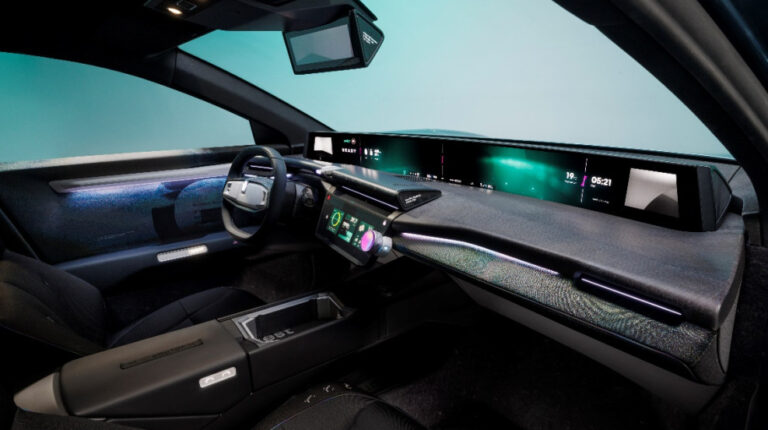Renault has used pineapples and linen in the development of the Renault Emblème demo car by Ampere, to respond to the challenges of climate change and the conservation of resources.
For the vehicle interior, sustainability technology company Forvia selected coverings made from recycled and natural materials, which also have the advantage of being carbon sinks (capable of storing CO2 ).
The contact zones on the door panels and central console have been upholstered in skins made from pineapple fibers – a lighter and more sustainable alternative to animal leather. The dashboard has been upholstered in linen made in Normandy (France).
“The ambition of the Renault Emblème project was to achieve maximum decarbonization by designing a car that is attractive, efficient, family-friendly, comfortable, high tech and versatile in use,” said Fabrice Cambolive, CEO of the Renault brand. “More than a concept car, it’s a demo car on the road that’s a pleasure to look at, to be in and to drive – a real invitation to travel!”
A lifecycle analysis (LCA) found that the car emits 5 metric tons of CO2 e during its lifecycle – almost 90% less than the Megane E-Tech electric.
The car achieved a 70% reduction in the carbon footprint for the production of all parts, 50% of the materials used to build the car were recycled, and virtually all the materials used are recyclable at the end of their service life.

In related news, Simoldes Plastics and Elix Polymers recently collaborated on the Simoldes Boost project, which aims to use recycled materials for premium vehicle interior applications. Click here to read the full story



